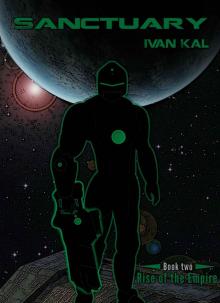A Paradigm of Earth


Author: Candas Jane Dorsey
Category: Other3
Published: 2001
Series:
View: 379
Read OnlineAmazon.com ReviewAn emotionally wounded woman finds connection, community, and her own sense of humanity in this powerful and beautifully written novel. Morgan Shelby has lost her parents, her lover, and her joy in life. She has inherited a sprawling old house whose upkeep is beyond her means, and she doesn't notice when the aliens land--she's busy recruiting tenants and fighting depression. Then she's hired to raise Blue, an infant alien sent to learn about Earth. Blue's government watchdogs aren't happy about the unconventional Morgan's influence on Blue, and no one in the household is ready for the ways in which Blue disrupts their lives and questions their assumptions about what it means to be human.A Paradigm of Earth is a sophisticated and moving study of alienation and humanity, with real characters in complex relationships, full of humor and hope. An excellent book for lovers of literary science fiction. --Roz GenesseeFrom Publishers WeeklyIn a radical departure from her austere first novel, Black Wine (1997), Canadian author Dorsey has produced a powerful character study filled with colorful and highly emotive language. Wounded by the sudden loss of her parents and the desertion of her long-time partner, Morgan Shelby moves to central Canada, where she has inherited an old mansion. She soon stocks the place with a menagerie of eccentric boarders, including a disabled painter and a drag queen with an international reputation as a dancer. The world has taken a conservative turn in the near future, and it's a difficult time to be gay in Canada. Nonetheless, Morgan, whose career has centered on caring for severely disabled children, soon finds herself interviewing for a surprising new job: the government hires her to help raise an alien. The creature is a tabula rasa, a blank slate, one of a dozen such possibly artificial beings scattered across our planet with the expressed purpose of learning about our culture. Morgan's relationship with Blue, as she names the androgynous creature, starts out professionally, but quickly becomes much more personal when Blue runs away from its secret government facility and turns up on Morgan's doorstep. Morgan's development from a depressed, hollow shell of a person to someone who can both love and be loved is detailed with impressive skill. Those interested in gender and feminism, as well as fans of thoughtful, emotion-centered SF, have a treat in store. Copyright 2001 Cahners Business Information, Inc.
 Valence (Confluence Book 4)
Valence (Confluence Book 4) Offside!
Offside! ADAMS, Douglas - Life, the Universe, and Everything
ADAMS, Douglas - Life, the Universe, and Everything The Boy Who Hugs Trees
The Boy Who Hugs Trees Sanctuary (Rise of the Empire Book 2)
Sanctuary (Rise of the Empire Book 2) The Hungering Saga Complete
The Hungering Saga Complete The Revolution of Birdie Randolph
The Revolution of Birdie Randolph Indecent
Indecent